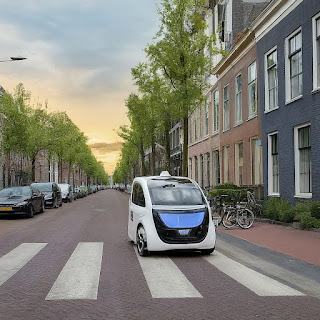Whether our public spaces are
autonomous or do they only have identity and utility as a function of something
else. Public spaces for instance, not being autonomous has an embedded problem,
that is, if something else on which it depends, if that something else - the
context - changes then public space may become defunct or underutilized.
The traditional urban planning and urban design values of context and surroundings are important but over-emphasis on context may be a compromise and sometimes inefficient way to deal with scarce resource.
Context in a built environment may change anytime or over a period of time due to forces of commerce, real estate, demographic changes, technological shifts, aggravated climate change impacts, and this context anchorage may hence be counterintuitive, a severe compromise on the quality of public realm for instance and even question mark on its existence.
Land is scarce and precious in a city and lifestyle dynamics is changing, so public spaces are expected to serve a purpose larger than its traditional perceptual value, they are expected to have a functionality beyond its established notion and planning and design which should look for its own identity and autonomy.
Hence the need of context independence (doesn’t mean anti-context) and autonomy of spaces (doesn’t mean incompatibility to surrounding) may be worth consideration.
Today, take water out of equation (for instance due to dry riverbed, polluted water) and our waterfronts may not function as envisaged; take buzz out of market place (unaffordable commercial real estate, vacant array of shops, emergence of new attractions elsewhere) and market squares may not perform as expected. If the context is gone, then once thriving public space may become deserted just like that, hence the need of autonomous public spaces.
So, the question to deliberate is, how do we plan and design our public spaces, rich and engaging enough, safe enough and attractive enough on its own, so that they function at its peak autonomously, irrespective of context, while having a context can always be an additional advantage.
Author: Anoop Jha
Please visit my web page "Urban Tenets" at https://urbantenets.nl/
************************************************
#Urbanplanning #urbanmanagement
#urbandesign #smartcity #publicspaces

.jpg)
.jpg)
.jpg)

.jpg)